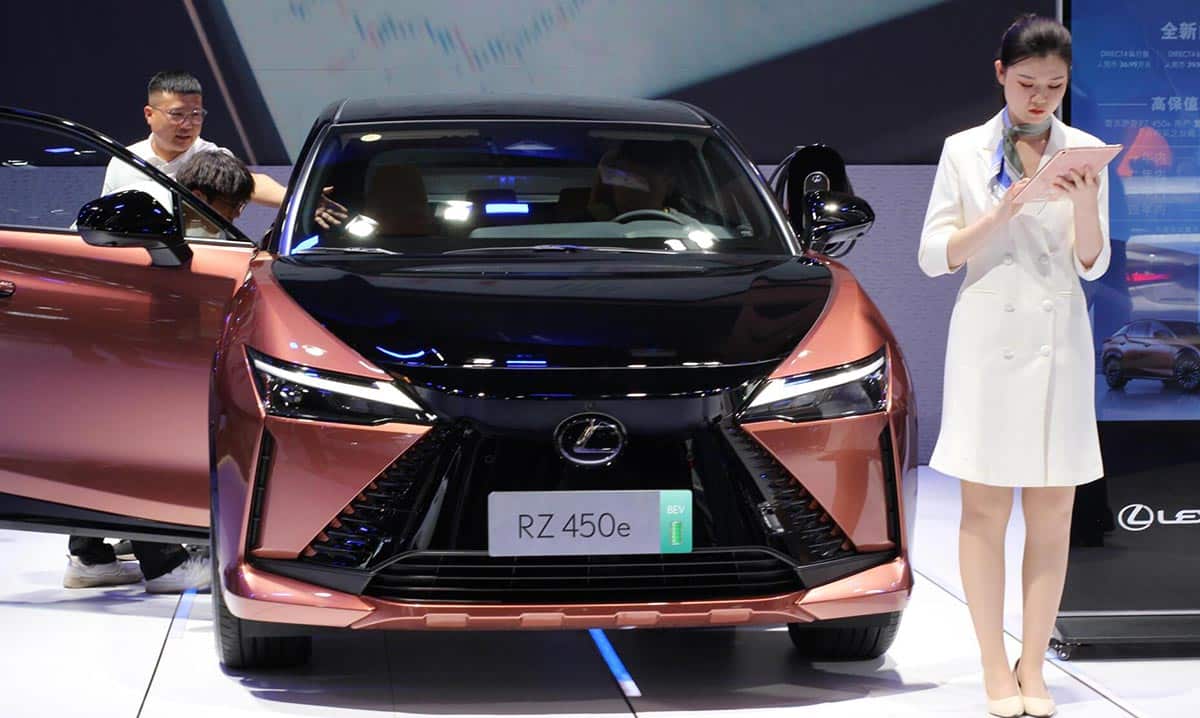The models will be sold in China and also to overseas markets such as Japan, according to local media.

Lexus, the premium brand of Japanese auto giant Toyota, is looking to build a wholly-owned factory in China and wants to first produce the Lexus UX hybrid and a new battery electric vehicle (BEV) model at the plant, a report by local media outlet 36Kr said yesterday.
The models will be sold in China and also to overseas markets such as Japan, the report said, citing several sources.
With Chinese authorities currently tightening controls on auto factory capacity, Lexus' plan to build a wholly-owned plant may not be finalized soon, the report said, citing a person familiar with the matter.
In a June 28 report, Bloomberg cited people familiar with the matter as saying that Toyota was discussing with Shanghai authorities the possibility of building a wholly-owned plant to produce Lexus' electric vehicles (EVs).
Toyota wanted Tesla (NASDAQ: TSLA)-like treatment, including tax breaks, policy support, land grants, and the unusual ability to directly own and control factories in China without the need for a local joint venture partner, according to the Bloomberg report.
Tesla's Shanghai factory, which began construction on January 7, 2019, and became operational by the end of 2019, is China's first wholly foreign-owned auto manufacturing project. Before that, foreign carmakers needed to set up joint ventures with local carmakers to manufacture in China.
Giga Shanghai began delivering Model 3 sedans in January 2020 and Model Y crossovers in January 2021 to local consumers.
The factory is now Tesla's largest in the world, not only delivering vehicles to Chinese customers but also serving as an export hub for it.
Toyota is the world's No. 1 automaker by sales, but it is seeing a decline in share in China, as are other Japanese automakers. China is Toyota's third-largest market after the US and Japan.
The slow pace of electrification has made it difficult for Toyota to find an uptake in China's new energy vehicle (NEV) market, 36kr noted.
Toyota's passenger car joint ventures in China are mainly GAC Toyota and FAW Toyota, and both of them saw sales decrease in the first half of the year.
In the first half of the year, GAC Toyota sold 362,171 units, down 15.70 percent year-on-year, and FAW Toyota sold 323,803 units, down 12.1 percent year-on-year, according to the China Passenger Car Association (CPCA).
